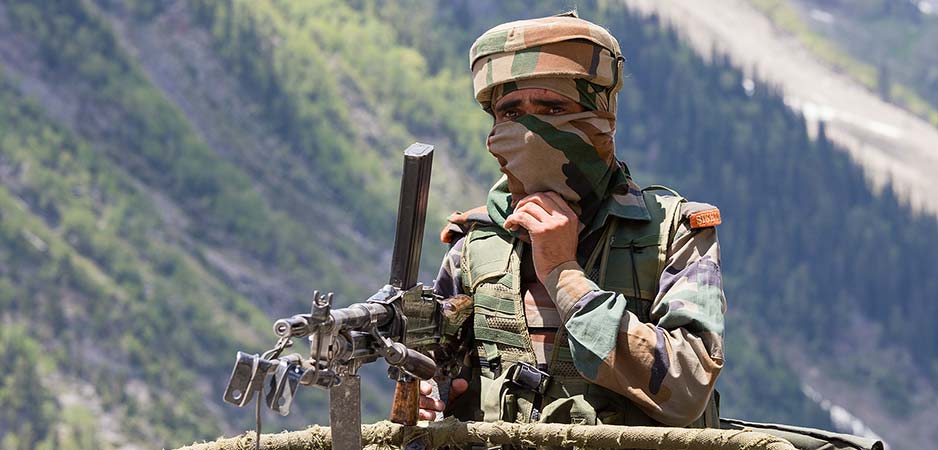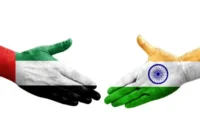The Group of Twenty (G20) is now “the premier forum for international economic cooperation.” The G20 comprises 19 countries and the European Union. Founded in 1999 and upgraded after the 2007-08 financial crisis, “it plays an important role in shaping and strengthening global architecture and governance on all major international economic issues.”
Most in the US and many in the West are unaware that India holds the presidency of the G20 from 1 December 2022 to 30 November 2023. This is a matter of great importance for a diverse democracy of over 1.4 billion people. Kristalina Georgieva, the managing director of the International Monetary Fund (IMF), has rightly argued that “India is uniquely positioned to bring countries together.”
In 2023, India stands as an engine of global growth. As per Georgieva, “In a world facing multiple challenges and rising geopolitical tensions, this leadership is critical—and beautifully captured in the theme of India’s G20 presidency: One Earth, One Family, One Future.” One earth means conserving the planet; one family means protecting the vulnerable; and one future means ensuring everyone can prosper. As a Kashmiri, I am delighted and excited that India is hosting the G20 summit in Srinagar, the capital of Jammu and Kashmir. That this event can be held in the heart of Kashmir Valley is hugely significant. Although long-disturbed, this land has become remarkably more peaceful and is increasingly integrated with the rest of the nation.
G20 Summit Showcases Kashmir’s Progress
For Kashmiris, hosting the G20 summit is a matter of great pride. Kashmir Valley can showcase its stunning beauty, its rich culture and extraordinary tourism potential to the rest of the world. In particular, young people are excited to be the center of world attention in a positive manner, and they relish the idea of engaging with world leaders and top thinkers.
Beyond momentary engagement, Kashmiris see the G20 summit as a milestone on the path of economic development. In the past, Kashmir was linked to troubled hotspots in the world such as Palestine and Chechnya, but that story is changing dramatically. Kashmir is now largely peaceful, has an educated population and grew by 14.64% in the 2021-22 fiscal year when many economies were reeling from COVID-19. Note that India’s fiscal year begins on 1 April and ends on 31 March. Growth in the 2022-23 fiscal year is expected to be higher. Kashmiris want the jobs and prosperity, not to mention momentum for peace, that growth will bring.
National Public Radio (NPR) and other Western media have painted a grim picture of Kashmir. In August 2022, NPR carried a story, which claimed that “resolution to decades of conflict remains a distant dream.” As a Kashmiri, I am saddened by these stories. The population of Kashmir Valley is youthful, and the young are no longer mired in conflict. They care more for the environment, the pollution in Dal Lake, the sustainability of economic growth, climate change that is melting the Himalayan glaciers and the delicate ecology of their uniquely beautiful valley. Fundamentally, the young want to get on with their lives and know a better future can come only with peace, not conflict.
Since 1947, Pakistan has played a pernicious role in Kashmir, sent jihadis across the border and stoked a bloody insurgency. This role is well chronicled and does not bear repetition here; however, Pakistan’s actions have setback a generation of Kashmiris. Growth does not thrive in turmoil and uncertainty, and peace and stability are necessary preconditions for businesses to thrive. Thankfully, the Indian government has provided the right conditions for entrepreneurship, business activity and growth since 2019. By repealing Article 370, it has allowed non-Kashmiri Indians to own land in Jammu and Kashmir, causing investment to flood into the region. This has made Kashmiris like me optimistic about the future.
G20 Summit Provides Economic Stimulus and Hope
The G20 summit has been a godsend to Kashmir Valley. To prepare for the event, New Delhi is building infrastructure, investing significant sums and training local people. The multiplier effect of the summit is likely to be significant. People now forget that Delhi was a sleepy provincial city before the 1982 Asian Games. That event converted Delhi into a national engine of growth, and it is hoped the G20 summit will similarly transform Srinagar. The Kashmir Chamber of Commerce and Industry (KCCI) has rightly said that this event “will give a massive boost to the economy of the region.” Notably, the G20 Kashmir summit will add to the IMF’s bullishness about the Indian economy.
The G20 summit is a global signal that Kashmir is open for business. It will be a great advertisement for tourism, which was a driver of the Kashmiri economy before troubles broke out in 1989. Kashmir is the crown of India with snowclad mountains, pine trees, lakes, landscapes, saffron fields and exquisite gardens. It is home to sophisticated cuisine, refined crafts and rich culture. For good reason, it has been called the Switzerland of India. Now it will have an opportunity to achieve its tourism and economic potential.
Once the G20 summit ends and tourism takes off, it will amplify the earlier-stated multiplier effect and generate jobs. These new jobs will lead to higher consumption. In turn, this will boost business confidence and lead to greater investment. This virtuous cycle will benefit the region, especially its youth. After a long period of trials and tribulations, we Kashmiris are finally hopeful about the future.
The views expressed in this article are the author’s own and do not necessarily reflect Fair Observer’s editorial policy.
Support Fair Observer
We rely on your support for our independence, diversity and quality.
For more than 10 years, Fair Observer has been free, fair and independent. No billionaire owns us, no advertisers control us. We are a reader-supported nonprofit. Unlike many other publications, we keep our content free for readers regardless of where they live or whether they can afford to pay. We have no paywalls and no ads.
In the post-truth era of fake news, echo chambers and filter bubbles, we publish a plurality of perspectives from around the world. Anyone can publish with us, but everyone goes through a rigorous editorial process. So, you get fact-checked, well-reasoned content instead of noise.
We publish 2,500+ voices from 90+ countries. We also conduct education and training programs
on subjects ranging from digital media and journalism to writing and critical thinking. This
doesn’t come cheap. Servers, editors, trainers and web developers cost
money.
Please consider supporting us on a regular basis as a recurring donor or a
sustaining member.
Will you support FO’s journalism?
We rely on your support for our independence, diversity and quality.







